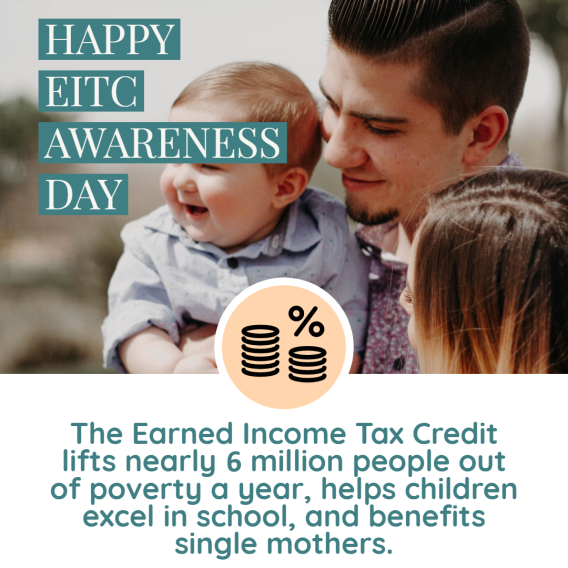
The U.S. Department of Justice describes domestic violence as “a pattern of abusive behavior in any relationship that is used by one partner to gain or maintain power and control over another intimate partner.” Not only does it lead to physical and emotional harm, but domestic violence often also involves economic stress, financial dependence, and difficulties holding a stable job.
Free tax filing help and refundable tax credits, such as the Earned Income Tax Credit (EITC) and the Child Tax Credit (CTC), may be a lifeline that can help survivors to boost earning power, establish a financial safety net, and ultimately end financial relationships with an abusive partner.
CONNECT WITH
- Domestic violence advocates and shelters
- Child welfare agencies
- Foster parent associations
- Family counseling, crisis intervention programs, and support groups
STRATEGIES
1. Work with staff at domestic violence shelters.
Train shelter staff and advocates to share information on free tax preparation, tax credits, and financial wellness services. Refer people to the National Coalition Against Domestic Violence’s State Coalition List or call the National Domestic Violence Hotline at 1-800-799-SAFE (7233). Provide flyers, brochures, and business cards on-site at domestic violence shelters with specific contact information for follow-up rather than a general organizational phone number or email address.
2. Conduct face-to-face tax credit outreach.
Electronic–only outreach efforts can miss and even endanger domestic violence survivors who are often more vulnerable to identity theft and cyber stalking. Instead of limiting outreach to websites, social media, and emails, arrange to speak about the tax credits during a meeting for advocates or shelter residents. Share the safety procedures in place at free tax filing sites and what clients can expect during their appointments.

3. Provide free tax filing assistance at domestic violence shelters.
Train staff to explain the benefits of claiming tax credits and answer questions about eligibility. Explain that VITA volunteers are bound by federal privacy rules when helping tax filers.
Help survivors manage joint tax liability with an ex-abusive partner with services such as Low-Income Taxpayer Clinics or the Taxpayer Advocate Service.
4. Reach out to relative caregivers and foster parents of children removed from a home impacted by domestic violence.
Make sure these families know about the tax credits and available free tax help. Connect with them through child welfare agencies, foster parent associations, or community-based programs with services such as family counseling, crisis intervention, and support groups.

5. Share information about the 2021 expanded Child Tax Credit and Earned Income Tax Credit.
The 2021 American Rescue Plan included multiple temporary one-year tax credit changes. The 2021 expanded Child Tax Credit is worth up to $3,600 for each child under 6 years old, and $3,000 for each child between 6 and 17 years old. The 2021 expanded EITC is worth up to $1,500 for workers not raising children or up to $6,700 for workers raising children in their home.
People who were eligible for the 2021 expanded Child Tax Credit or the 2021 expanded Earned Income Tax Credit and didn’t claim them can file a 2021 tax return by April 18, 2025. Learn more about filing prior year taxes.
ADDITIONAL RESOURCES
- National Network to End Domestic Violence
- Emergency Shelters Locator – DomesticShelters.org
- Domestic Abuse, Sexual Violence and Substance Use – Orlando Recovery Center







